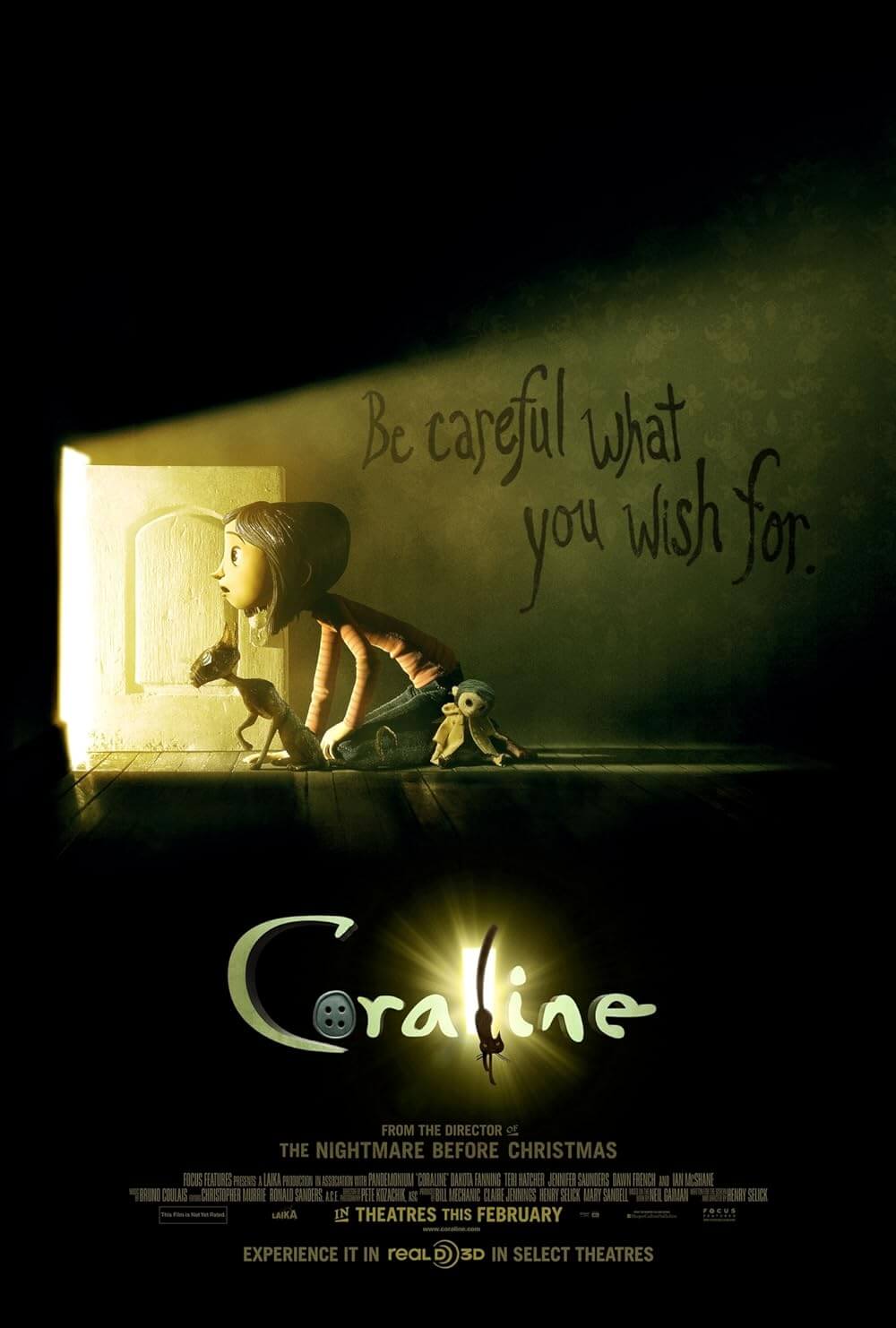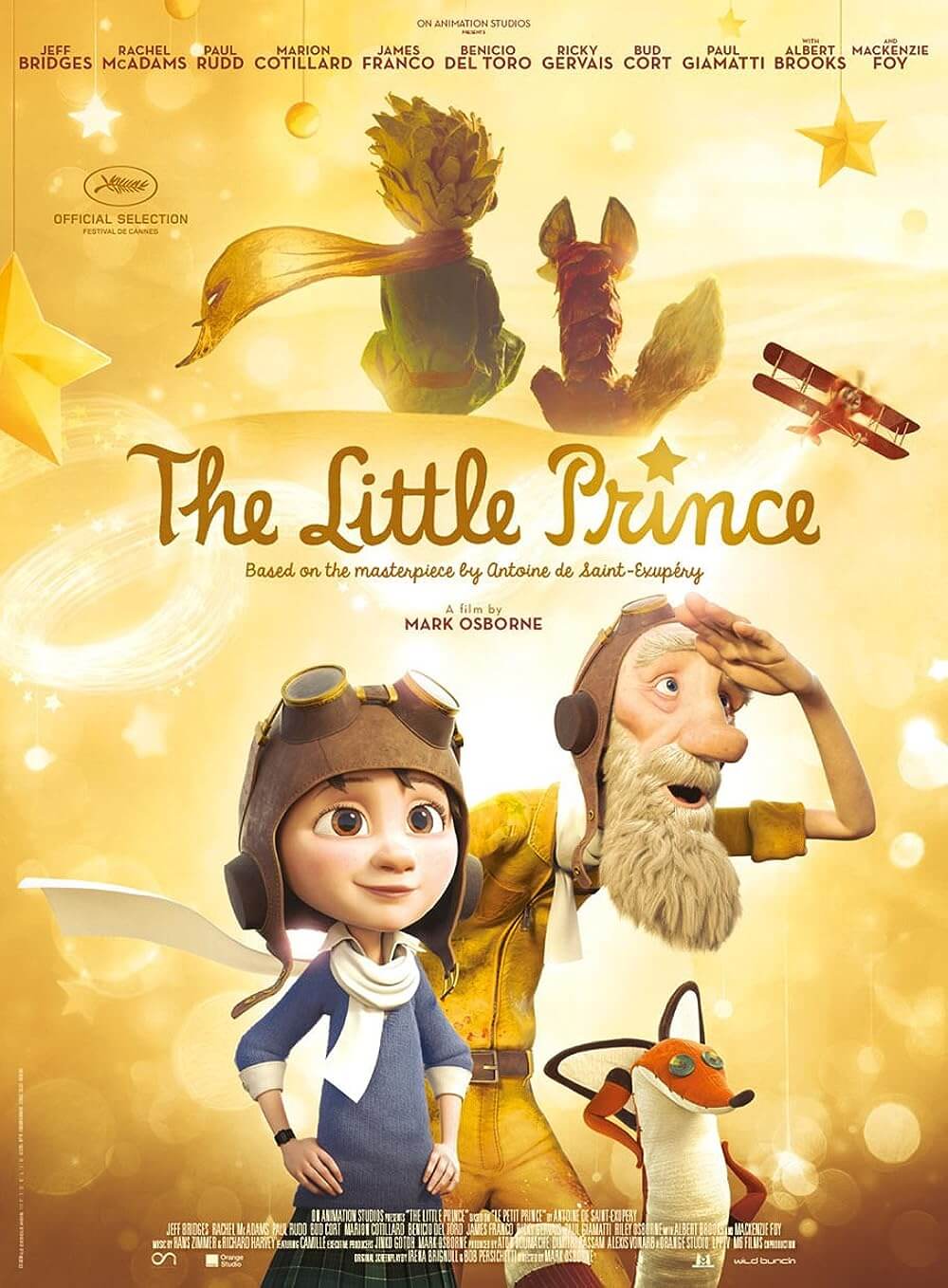Reader's Choice
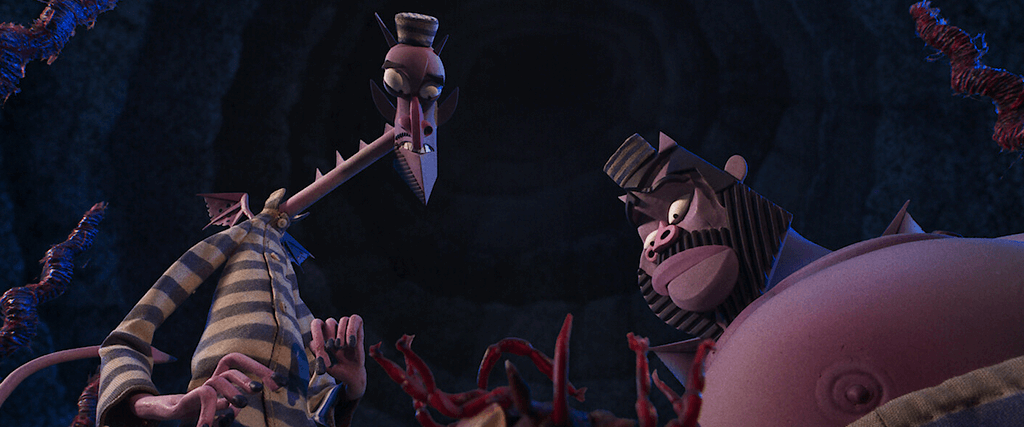
Wendell & Wild
By Brian Eggert |
Henry Selick must have the most overlooked name in animation history. Few directors have been responsible for so much memorable stop-motion output, whereas his collaborators—Tim Burton, Roald Dahl, Neil Gaiman—often draw attention away from Selick’s helming of The Nightmare Before Christmas (1993), James and the Giant Peach (1996), and Coraline (2009). Even so, each example features a distinct visual style, rhythm to the movements, tactile details, surreal logic, and use of color and shape that accumulate into “a Henry Selick film.” Wendell & Wild, his first feature in thirteen years, finds him paired with another name that might prove distracting. This time, Jordan Peele serves as co-writer, producer, and voice actor alongside Selick. But rather than adapt someone else’s material, Selick directs a screen version of the unpublished book he co-wrote with Clay McLeod Chapman. Peele’s influence appears throughout the proceedings, but there is, at the very least, no suppression of Selick’s name on this Netflix-backed production. Yet, much of Selick’s considerable artistry has been jam-packed into a story that never quite achieves harmony with its visual presentation.
At first glance, Wendell & Wild looks similar to Selick’s other work, in that the director doesn’t try to disguise that his tangible-looking characters are moving figurines, allowing their expressionistic designs by Pablo Lobato to display their constructed reality (note the seams along the components of each character’s head). It’s a similar flourish to one deployed by Charlie Kaufman and Duke Johnson in Anomalisa (2015), wherein the filmmakers call attention to the method of animation, but somehow, that makes the characters more convincing. Selick also uses a smattering of CGI effects and computer animation to create ghosts and dream projections, a common tactic in stop-motion animation today. If, given these digital touches, the resulting film feels somewhat less handcrafted than the director’s earlier work, then it nonetheless adheres to an overall Selick aesthetic, which, in this case, he has been tinkering with since the film went into development in 2015.
The visual style is familiar territory for Selick, packed with graveyards, skeletons, and resurrected corpses, but the narrative sometimes has an overly familiar Burton-esque flavor, with hints of 1988’s Beetlejuice throughout. Like that film, the story involves a young girl and some adults beleaguered by practical matters in the land of the living, only to summon a mischievous demon to assist her—two, in fact. Wendell (Keegan-Michael Key) and Wild (Peele) live in the underworld, serving their colossal-sized father, Buffalo Belzer (Ving Rhames), who operates a carnival of souls on his tummy. The two titular demons once proposed some updates to the fairgrounds, but Belzer didn’t like that idea, and he responded by damning them to a life of squirting hair cream onto his unhealthy scalp. Eventually, Wendell and Wild get the idea to convince a young girl, Kat (Lyric Ross), to become their “Hellmaiden” and usher them into the earthly realm. An orphan who survived an accident where her parents drowned after driving off a bridge (another hint of Beetlejuice), Kat continues to process her survivor’s guilt.
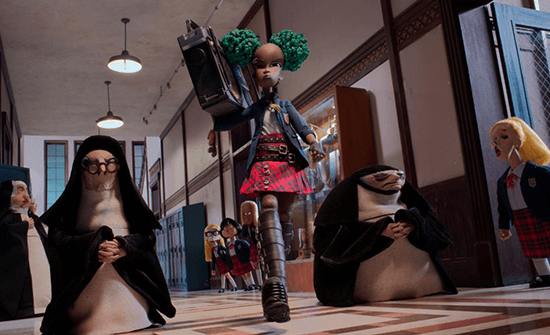 Although the basic logline has a familiar supernatural bent, Selick and Peele’s scenario grows ever more complicated by the minute, concentrating the viewer’s attention on the elaborate plot instead of the intricate visuals. Ever since the death of her parents and the subsequent closure of her family’s brewery, Rust Bank has become a ghost town—under siege by a pair of wealthy prison magnates, the Klaxons (Maxine Peake, David Harewood), who have been buying up land to install an elaborate private penitentiary. After years in juvenile homes, Kat returns to Rust Bank, where she’s handed over to the local Catholic school. Somewhere between a morphing mollusk and a stuffed animal named Bearz-a-bub, Kat receives the mark of a demon, allowing her to conjure Wendell and Wild, who promise to help resurrect her parents and save Rust Bank. Unfortunately, Wendell and Wild prove to be typical demons—unreliable—and make a side deal with the Klaxons, who promise they’ll help Wendell and Wild erect the fair their father refused to build.
Although the basic logline has a familiar supernatural bent, Selick and Peele’s scenario grows ever more complicated by the minute, concentrating the viewer’s attention on the elaborate plot instead of the intricate visuals. Ever since the death of her parents and the subsequent closure of her family’s brewery, Rust Bank has become a ghost town—under siege by a pair of wealthy prison magnates, the Klaxons (Maxine Peake, David Harewood), who have been buying up land to install an elaborate private penitentiary. After years in juvenile homes, Kat returns to Rust Bank, where she’s handed over to the local Catholic school. Somewhere between a morphing mollusk and a stuffed animal named Bearz-a-bub, Kat receives the mark of a demon, allowing her to conjure Wendell and Wild, who promise to help resurrect her parents and save Rust Bank. Unfortunately, Wendell and Wild prove to be typical demons—unreliable—and make a side deal with the Klaxons, who promise they’ll help Wendell and Wild erect the fair their father refused to build.
Selick and Peele cram so much plot into the 105-minute runtime that it’s a challenge to keep up, and no character feels adequately developed—not even our hero, Kat, who has no more than two dimensions. Most of the movie takes place from Kat’s perspective, while the titular characters remain afterthoughts (prompting one to wonder why the film wasn’t called Hellmaiden). But the characters also include Sister Helley (Angela Bassett), a nun with a demonic secret of her own; Kat’s resurrected parents (Gary Gatewood, Gabrielle Dennis); Raúl (Sam Zelaya), a fellow student who befriends Kat; and Raúl’s mom (Natalie Martinez), a paralegal investigating the Klaxons. There are plenty of others, too. Instead of giving these characters room to breathe, Selick and Peele preoccupy themselves with an obvious social commentary about a corporation manipulating the church and state to rig an upcoming election and control Rust Bank. The lesson seems to be this: in the company of the ruthlessly capitalistic Klaxons, a buyable priest (James Hong), and corrupt politicians, maybe the underworld demons aren’t so bad.
Still, every scene contains inspired visuals that make you wish the story wasn’t so busy, so that you could savor each moment a little longer. For instance, I enjoyed the sequence when Kat has to overcome a specter from her past (which looks suspiciously like Warlock from The New Mutants). Bathed in a luminescent green light, it forms a silhouette similar to the animated sequences from last year’s Candyman. I was also delighted to discover background details in art at the Catholic school, which conveys the inherent creepiness of Biblical stories (the beheading of John the Baptist) and nuns beating children with rulers. From moment to moment, there’s a whole world worth inhabiting and exploring with your eyes, but the overstuffed plot doesn’t savor these details. Moreover, Selick makes some curious choices musically. Randomly, an original song appears mid-film, turning Wendell & Wild into a brief musical. Elsewhere, the rest of the rather excellent soundtrack features needle drops from predominantly Black musical artists such as X-Ray Spex, Living Colour, and Hot Chocolate. As awesome as Buffalo Belzer’s arrival to “Cult of Personality” looked and sounded, the music selections felt oddly out of place, especially next to Bruno Coulais’ score.
With its cramped plot and elaborate mythology that remains underdeveloped, Selick’s film feels more like the setup of a series than a solo outing. But it’s not as though the filmmakers can crank out a sequel in a couple of years; stop-motion animation of this scope takes several years to complete. So Wendell & Wild leaves you wanting more in a way that feels unfulfilling. By contrast, in the best way imaginable, the film makes you wonder, Who is this for? It might be too grim and political for the average kid, while animation, a medium wrongly attributed to children only, may dissuade the PG-13 rating’s target audience. In that sense, the film’s oddness is easy to admire and should appeal to those drawn to the strange and unusual. Unfortunately, the storytelling isn’t as engaging as Selick’s visual contributions, making the director’s latest an admirable but mixed bag of bones.
(Note: This review was originally suggested on and posted to Patreon on November 10, 2022.)
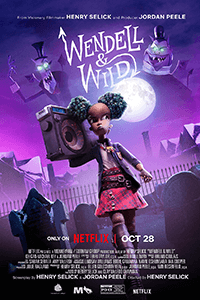
Thank You for Supporting Independent Film Criticism
If the work on DFR has added something meaningful to your love of movies, please consider supporting it.
Here are a few ways to show your support: make a one-time donation, join DFR’s Patreon for access to exclusive writing, or show your support in other ways.
Your contribution helps keep this site running independently. However you choose to support the site, please know that it’s appreciated.
Thank you for reading, and for making this work possible.
Brian Eggert | Critic, Founder
Deep Focus Review


